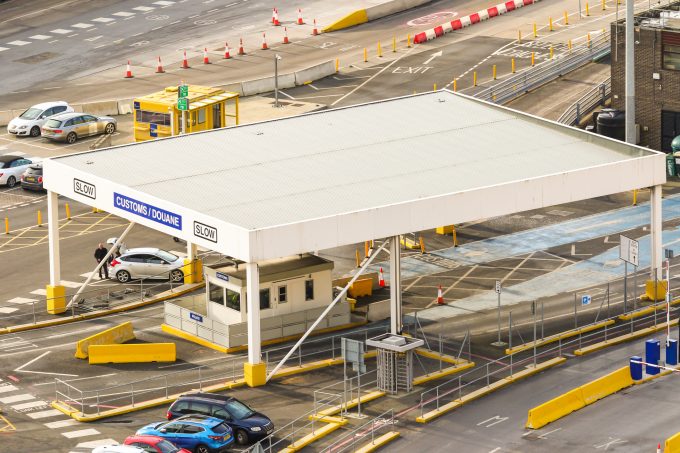FedEx to shed up to 2,000 posts in European consolidation
FedEx is planning to shed between 1,700 and 2,000 posts among its workforce in Europe ...
TFII: SOLID AS USUALMAERSK: WEAKENINGF: FALLING OFF A CLIFFAAPL: 'BOTTLENECK IN MAINLAND CHINA'AAPL: CHINA TRENDSDHL: GROWTH CAPEXR: ANOTHER SOLID DELIVERYMFT: HERE COMES THE FALLDSV: LOOK AT SCHENKER PERFORMANCEUPS: A WAVE OF DOWNGRADES DSV: BARGAIN BINKNX: EARNINGS OUTODFL: RISING AND FALLING AND THEN RISING
TFII: SOLID AS USUALMAERSK: WEAKENINGF: FALLING OFF A CLIFFAAPL: 'BOTTLENECK IN MAINLAND CHINA'AAPL: CHINA TRENDSDHL: GROWTH CAPEXR: ANOTHER SOLID DELIVERYMFT: HERE COMES THE FALLDSV: LOOK AT SCHENKER PERFORMANCEUPS: A WAVE OF DOWNGRADES DSV: BARGAIN BINKNX: EARNINGS OUTODFL: RISING AND FALLING AND THEN RISING

HMRC has ramped up its efforts to get cargo owners and hauliers ready for changes to UK customs processes, but the industry seems concerned at “alarming” levels of uncertainty.
From 1 October, there will be new safety and security requirements surrounding exports with an expanded list of movements requiring exit summary declarations (EXS), raising complexity in GB-EU supply chains.
Government delayed implementation the full rollout of EXS, scheduled for March, in response to the pandemic, limiting the change to certain movements, including empty containers, pallets and vehicles moved under a transport contract, goods stored for less than 14 days lacking import safety declarations, where the consignee or destination has changed, or goods moving under the EU’s Common Transit Convention.
However, from the end of next month, shippers will be required to supply an EXS for further movements, like empties being moved under a transport contract to the EU and goods moving by ro-ro vessels where there would otherwise be a requirement for an EXS.
During a live event explaining the process, a stream of worried attendees submitted questions, including “what is the definition of a customs clearance on an export?”.
Chairman of Agency Sector Management (ASM) Peter MacSwiney said: “There did appear to be an alarming number of questions for a system going live in a few weeks, especially as some of the attendees appear to have some experience of the system.”
With the addition of further movements to the EXS scheme, there was further fear that the process would differ depending on “how and where” goods were moved.
HMRC warned that some export gateways would not be using the Chief customs control system, while others are expected to utilise the Goods Vehicle Movement Service (GVMS), and there were calls for a full list of the schemes each port would adopt.
There was also concern as to whether testing had been carried out to check the viability of EXS. An attendee asked: “Has anyone carried out a proving exercise with the impacted stakeholders to determine whether the EXS process is possible and will not impact the movement and flow of goods?”
And as attendees appeared increasingly alarmed by what they saw as HMRC’s lack of organisation, they were warned that shippers must legally submit correct information.
But one haulier asked: “If I ship out a container owned by my customer and ship this empty back to the EU, will an EXS be necessary? This is valuable information, because from a haulier’s viewpoint, we talk about making costs or not and invoicing those.”
Comment on this article